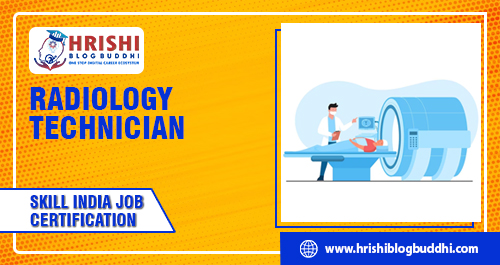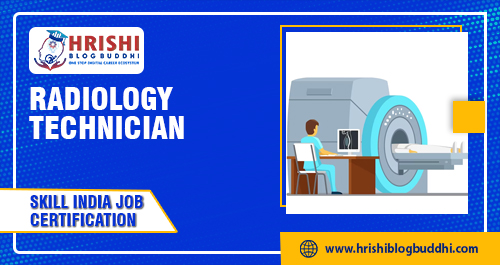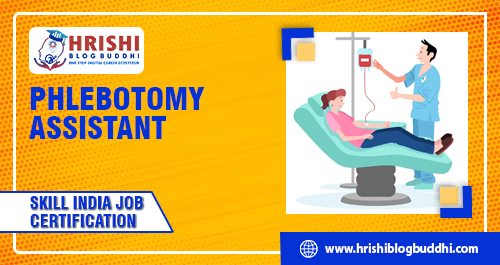Healthcare Sector
Skill India Sector Blogs
The Complete Guide on How to Become a Radiology Technician
Share this post

Introduction
If you’re wondering how to become a radiology technician, you’ve come to the right place. A radiology technician is a healthcare professional who specializes in diagnostic imaging examinations such as X-rays, MRIs, and CT scans. Some radiologic technologists focus on certain fields connected to specific body parts. The radiology technician is responsible for preparing patients and equipment for radiological treatments, as well as performing and maintaining the examinations. Clinics, imaging centers, hospitals, and private medical offices are just some of the places where they can operate. They must also take sufficient precautions with the patients, ensuring that they are not exposed to radio waves that are harmful to their health. In this article, we will discuss more about how to become a radiology technician.
Job Description
Radiology is a medical specialty that involves the use of medical imaging to diagnose and treat illnesses in both animals and humans.
To diagnose or treat diseases, a range of imaging techniques are utilized, including X-ray radiography, ultrasound, computed tomography (CT), nuclear medicine, including positron emission tomography (PET), fluoroscopy, and magnetic resonance imaging (MRI).
Radiologist technologist provide crisp, accurate pictures of the body, allowing doctors to detect and treat medical disorders that would be impossible to record otherwise. All of the machinery and equipment are operated by these professionals.
Responsibilities & Duties
- Radiographic technician finishes the patient intake process, gathers histories, and prepares and educates patients about the imaging procedure.
- They create radiopharmaceuticals for use in diagnostic pictures as a contrast.
- To capture the correct region and provide quality pictures, technicians arrange patients and equipment in the proper positions.
- During imaging operations, they also keep an eye on patients and ensure their safety.
- Adjustment of the equipment to guarantee that clear, use photos of the proper region are captured, as directed by the doctor.
- They guarantee that the equipment is sterilized and stored properly, that radiographic equipment is maintained, and that any equipment malfunctions are reported.
- Before the examination, they study the patients' files and Doctors' notes, and they keep track of the patients' records throughout and after the operation.
- They also answer and reply to radiology-related questions from patients. Interacting with patients and their families about radiology techniques and processes is very important.
Skills
- You'll be in charge of numerous layers of contact with patients and coworkers as a radiologic technician. That is why you must be able to communicate effectively.
- A radiologic technician must be acquainted with their technology and gear to adjust and maintain radiology equipment.
- A technician must also be able to regulate the duration and intensity of radiation exposure.
- A radiologic technician will study examination techniques, human anatomy, radiation safety, and more about the fundamentals of patient care.
- They should know about BLS, Computerized tomography, taking X-rays, assessing bone density and vital signs, fluoroscopy, and other important things.
Qualifications
- Radiography or radiologic technology associate's or bachelor's degree is required.
- To practice, you'll need a state license and certification.
- Excellent interpersonal, communication, and patient service abilities.
- A student can complete 12 science projects (Biology recommended). After that, get your B.Sc. in Radiology. You can then pursue an M.Sc in Radiotherapy. After that, you can pursue a Ph.D. for another 4-5 years.
- They're also capable of A student can complete 12 science projects (Biology recommended). Then finish your Radiology Diploma.
- It's also necessary to have strong analytical and problem-solving abilities.
Salary
- An entry-level Radiology Technician with less than one year of experience may expect to make between $350,000 and $400,000 in total compensation (which includes gratuities, bonuses, and overtime pay).
- The typical total income for an early career Radiology Technician with 1-4 years of experience is 304,102-350,00.










Snapping X-rays like a pro, turning patients into temporary superheroes with a flash.